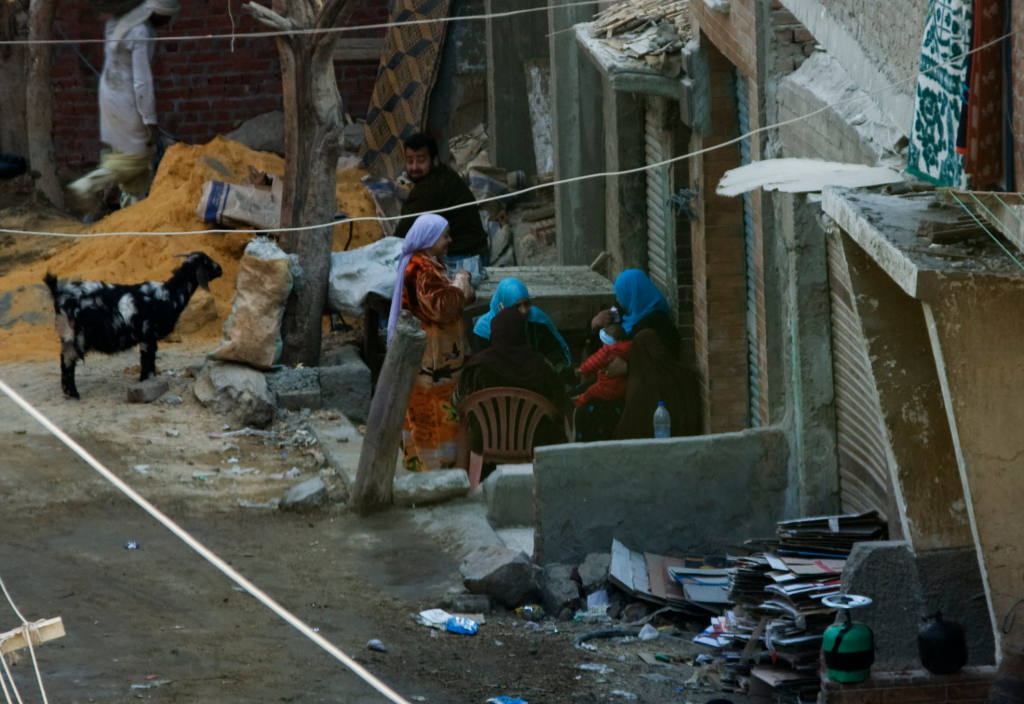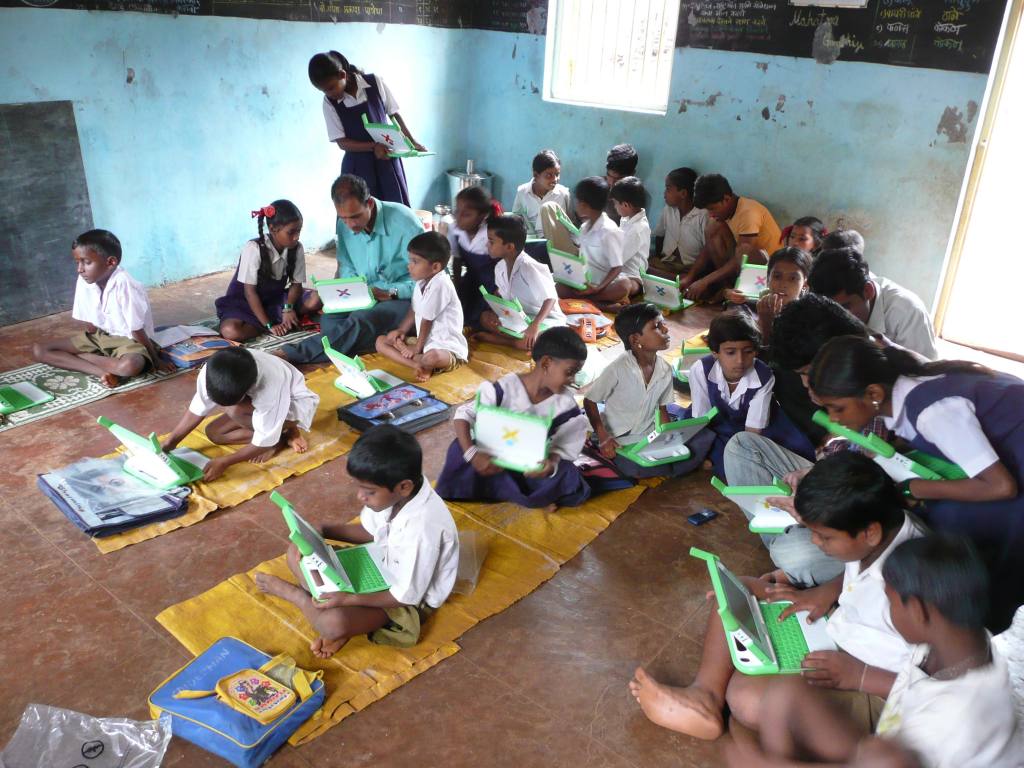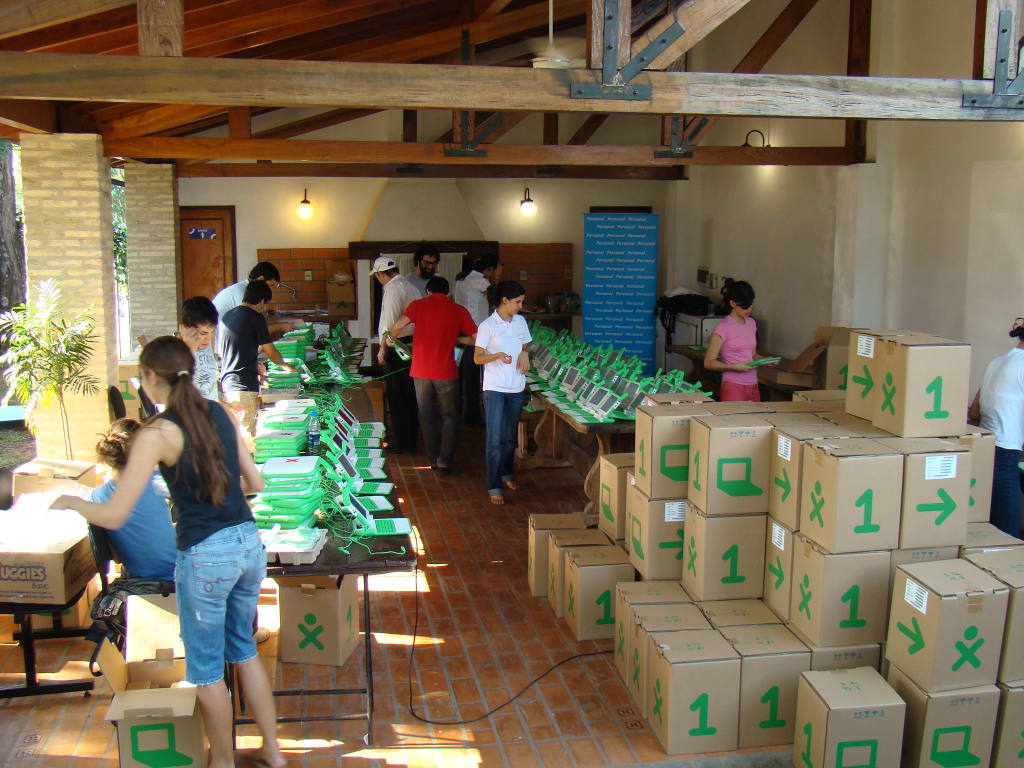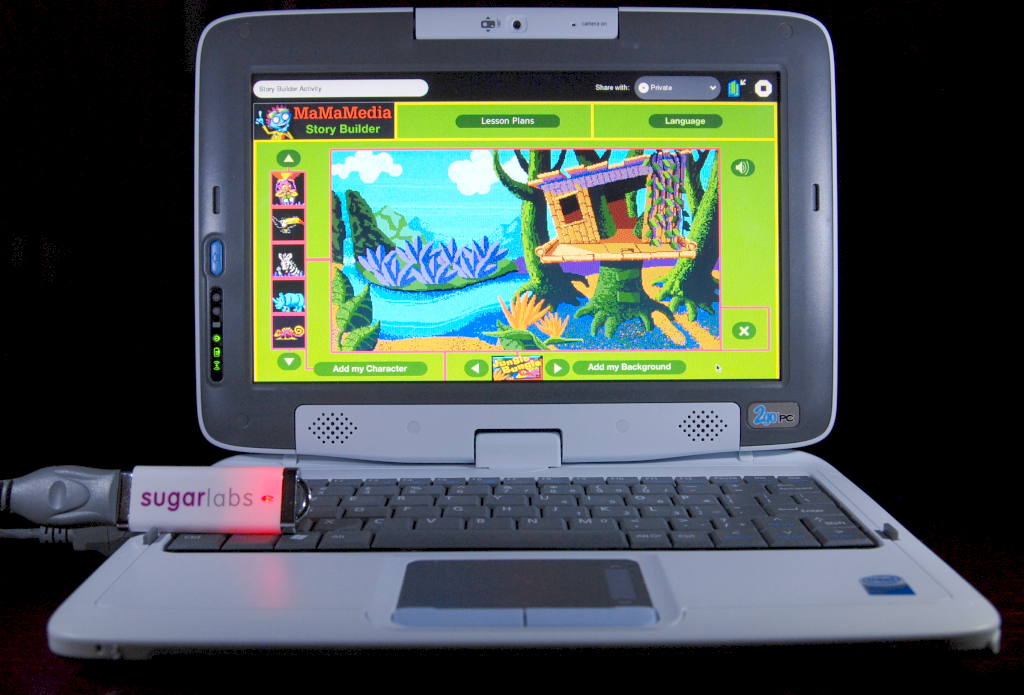Recently, I had to fact-check some older articles I wrote about One Laptop Per Child in order to bring them up to date. This meant digging through the controversy in 2008, and what I found was some pretty appalling human behavior. That's the "bitter". The "sweet" is that both OLPC and Sugar (now separate projects) are both doing a lot of good in the world. Sugar, in particular, is doing a better job of connecting with the community. That's a challenge for us in the community to step up and do a much better job connecting with Sugar. We need to make it the best thing ever, and that's going to mean more than lip service. So we all need to get it installed and start contributing.
The vocal people involved in this controversy (Nicholas Negroponte, Walter Bender, Ivan Krstić, and Richard Stallman) have done some great things in the world, for which they all deserve respect, no matter what human frailties they may have shown recently. It is therefore very frustrating to see them choosing not to show much respect for each other. Yet again, the victims could only be the kids caught in the middle.
In brief, my opinion of the affair is this: Scuttling the potential of the next generation of the Human race for programmer politics isn't any better than scuttling it for proprietary profits. Either is execrable behavior and it needs to be stopped.
Fortunately, the OLPC movement (consisting of the OLPC organization, the newly formed Sugar Labs, and the community supporting them both) has rallied extremely well, and has reorganized in a way that should be beneficial to all.
They deserve our support.
What Happened
Just in case you weren't paying attention, or have forgotten...
Some very unfortunate things were said in 2008. No doubt the stress of OLPC failing to reach its expected goals lies at the root of this trouble. The community, though enthusiastic about the use of GNU/Linux and the Sugar project, was not very materially supportive, and finger-pointing ensued. The acrimonious split with Intel over the marketing of the Classmate in OLPC countries probably didn't help any, either.

Here's the worst of it in a nutshell:
Nicholas Negroponte was quoted in BusinessWeek as saying that OLPC had been run "almost like a terrorist group, doing almost impossible things" and that instead it should be managed "more like Microsoft." Needless to say, this was a truly unfortunate choice of words (I leave it up to you to decide whether mentioning "terrorists" or "Microsoft" was the more inflammatory choice). Not long after, he posted an announcement which said:
"One Laptop per Child is announcing an agreement with Microsoft to make a dual boot, Linux/Windows, version of the XO laptop."
Microsoft's marketing department put this into its own words in a press release:
"The availability of Windows, in addition to Linux, on the XO laptop will allow customers to have an expanded choice of operating environments that best fit their requirements."
This made it much less clear to the cursory reader that the configuration was to be a dual-boot system. Since Microsoft was also at this time muscling in on GNU/Linux's new-found "netbook" market, it seemed very plausible that Microsoft would do the same to the XO. Negroponte made things even worse by refusing to deny the possibility of a Windows-only XO until much later (he did eventually say that there would only be a dual-boot configuration, though some might argue that he might still change his mind at Microsoft's behest).
Negroponte defended his position thus:
"To enable the Sugar environment to reach as many children as possible, particularly in the poorest areas of the world, OLPC must be able to bid on educational technology contracts, some of which require that Microsoft Windows be able to run on our hardware. The increased volumes will lower the XO-1's price, already lowest in the industry with capabilities no other laptop shares."
In any case, the policy change was presented by many press outlets as a "switch to Windows" and a great victory for Microsoft. In many cases, it took careful reading to find the "dual-boot" information.
Earlier, Richard Stallman had expressed support for the OLPC mission, when it was clear that it was going to be 100% free software (to a greater degree than any existing laptop—right down to the firmware, though alas not to the hardware, which is not open).
Hearing this news, led him, however, to top Negroponte's bad taste in self-expression in his own message:
"You might as well introduce the children to an addictive drug. If the XO turns out to be a platform for spreading the use of proprietary software, its overall effect on the world will be negative."
As with Negroponte's missives, there was actually quite a bit of sense in Stallman's post—to the careful reader (for one thing he quite rightly supported continued community development on Sugar). But to the more extremist readers, the sanity was lost and the vitriol remembered: all they heard was that Stallman had issued his fatwa on the OLPC project. Promptly, they dutifully reported its "failure". Likewise, most news outlets who covered the issue at all, covered it as a rift, with none of the nuance of Stallman's original, with titles like "OLPC teaches children to 'smoke Windows'" or "Richard Stallman Slams OLPC for Switching to Windows".
Meanwhile, behind the closed doors of OLPC, Negroponte apparently let loose with even less guarded commentary to the people he was working with: Walter Bender (the man behind Sugar) and Ivan Krstić (who was in charge primarily for developing educational content for the OLPC program, as well as being involved with Sugar). Both relate disturbing interchanges with Negroponte, leading to their departure from the OLPC organization proper.
Bender was severely disappointed in the Windows decision, commenting that
"If you read between the lines, the idea is to stop trying to be disruptive and to start trying to make things comfortable for decision-makers [...] Personally, I think that the customer is not always right [....]"
He started Sugar Labs and left OLPC after his original job was eliminated, effectively demoting him within the organization.
Ivan Krstić was even more critical, saying:
"Not long ago, OLPC undertook a drastic internal restructuring coupled with what, despite official claims to the contrary, is a radical change in its goals and vision from those that were shared with me when I was invited to join the project."
Perhaps illuminating this innuendo, he later wrote:
"In fact, I quit when Nicholas told me—and not just me—that learning was never part of the mission. The mission was, in his mind, always getting as many laptops as possible out there."
So what does it all mean? Is it all over for OLPC? Or is this just a bump in the road? Let's try to get some perspective.
OLPC's XO is Still a Powerful Tool
As weapons against ignorance go, the OLPC XO series delivers a pretty big "bang for the buck". It's not just a matter of providing books or classroom curricula, it's read-write access to the world culture created by the internet. It's a library, a newspaper subscription, and a printing press rolled into one small package. That's already a huge bargain.
Knowing how to build the printing press, and how to build other things besides, is also extremely valuable. That's one benefit of using free software, particularly in the form of the Sugar UI and the Sugar activities that go with it.
It truly was a beautiful thing when the whole package, right down to the BIOS was 100% free software. However, it's considerably less significant for the children (and even their future adult selves) that the operating system itself and the BIOS that boots it are also free software—partly because so few of them will really delve that deeply and partly because those who do would not be stopped by the hassle of downloading and installing a new operating system anyway. Nevertheless, despite a few dark hints to the contrary, every XO still has a complete free software system installed—even the ones that have been delivered with an additional dual-boot Windows XP system.

Adding a few black-boxed components to the mix may be ideologically impure, but it's not devastating to the mission. If bolting on Windows XP to satisfy a check box in some bureaucrat's report means delivering GNU/Linux and Sugar to a few million more kids, then I support it.
Likewise, it would've been even better had the whole hardware design been open hardware, free to be modified, adapted, and manufactured in the developing world by the people who need it. But we don't have to win every little battle in order for OLPC to be a good thing.
We—the community that produced GNU/Linux and Python and Sugar—have the potential here to make a real difference in the future of the world. With cooperation and hard work, we could go a long way towards ending the problems of ignorance and disenfranchisement for a large part of the world.
But only if we get there.
Getting There From Here
Right now, the OLPC project stands at about half a million units either deployed, or in the process of being deployed worldwide. That's about 5% of the stated target for the end of 2007 (over a year ago), and only about 0.5% of the original stated objective of the OLPC project, which was closer to 100 million (about 1/60th of the population of Earth). Presumably the real target (every child on Earth) is an even higher figure. Clearly OLPC has fallen far short of its progress goals.
Between here and there lies a minefield of politics, special interests, and corporate maneuvering. The OLPC project operates in one of the harshest political environments imaginable: not just education and not just the developing world, but both in one package!
In an ideal world, education ministries in developing nations would recognize the benefit of the GNU/Linux machines and not waste money or capital exposing children to non-free software that might not really be all that good for them in the long run.
Of course, in an ideal world, there would be no "developing" nations. They'd already have all their problems sorted out. Education would be universal and fair now.

There's a lot of missing bricks from the needs pyramid of developing world kids. Education is just one part of the solution. The XO laptops represent an enormous outlay of public funds in poorer countries, and they are thus subject to very close public scrutiny. Can they really be blamed for wanting to keep their options open with machines that can run Windows?
To insist on an all-or-nothing fastidiously ideological approach in this context is, at best, feckless and naive. At worst, it's irresponsibly partisan obstructionism in the worst possible taste.
Where is the OLPC Project Now?
Fortunately, all the bickering has been over for a few months, and now it's well past time we got to the business of playing the hand we've been dealt. Luckily, though not perfect, it's a pretty good hand!
The facts on the ground now (in 2009):
-
OLPC's XO is still the freest thing going: free BIOS, free operating system, free window manager, free applications. That some of them will carry Windows as well is a detail: deploying free software is a lot more important than hurting Microsoft
-
Sugar has broken away from the OLPC organization, taking Walter Bender and others with it, as a new entity called "Sugar Labs". It has its own independent online presence and community now. A series of more portable builds has been an outcome of this process.
-
Nevertheless, we now have choices. The XO was popular enough in the developed world to spawn a raft of imitators: a whole new class of computer, popularly called "netbooks".
-
Sugar runs on those imitators, on the XO, and on refurbished or new computers anywhere in the world. Whatever you might think of the XO as the deployment vector, Sugar is a free software tool that all free software advocates can support
-
Sugar is 100% free software. Even the Squeak/Etoys package has gotten over whatever licensing quibbles it was encumbered with. Today, it's even being admitted into Debian main, although the administrative hurdles will take a few months to clear.
-
OLPC is seeing bigger orders. Evidently, Negroponte's Windows gambit is working.
Having already achieved its tremendous engineering goals, OLPC is now focused on the simple task of getting laptops built and delivered. This is a huge task which harnesses the best aspects of the standard corporate industrial model for a good cause. That Negroponte has opted for a less confrontational, more conformist attitude toward that industry is probably a symptom of this shift from a development to a production focus. The point from his point of view, is to get the things made and delivered. I think he's right about that—it could be that the time for pushing the technical and social envelope is over for OLPC.

At the same time, this situation is terribly disappointing to idealists like Walter Bender, who was behind the original design of Sugar and Ivan Krstić who was intimately involved both in content development and in deployment. Both of them were very disappointed by this shift of focus, since they see the content and software as the most important part of the equation for helping kids. After all, what good is yet another laptop gadget? They're probably right, too.
Now, with two separate organizations, both parties are in a freer relationship with more options on all sides. As the free software community, we're probably more aligned with Sugar, and that's just fine. Sugar has a lot of potential, and it needs our direct help to make it better.
Put Sugar On It
Sugar isn't being supported by some centralized professional development team anymore, it's moved to the community. Naturally, the original team is continuing work, and looking for more money to keep themselves supported to work on it full time.
But what the project really needs is direct help. There's lots of stuff that needs to be implemented in Sugar, and probably of greater importance, there's a whole huge collection of free software packages that could be packaged as Sugar "activities" ("sugarized") or at least made to run under Sugar's UI ("sugar coated").

Remember that "view source" key? Apparently it doesn't really work yet, and it really ought to. That's something we can fix. And to listen to us, you'd think we though it was important. So why is it still broken?
So long as we aren't running Sugar, though, we have the "out of sight, out of mind" problem: we won't notice what's missing, let alone be annoyed enough to fix it, if we don't see a lot more of Sugar right here among the privileged. If you've got a computer, you can almost certainly run Sugar on it: in an emulator, as an alternate window manager, or even as your main system. If you've got kids with computers, why not try out Sugar on them? After all, it's the only GNU/Linux shell out there that was really designed from the ground up for six-year-olds.
I've been guilty of this myself. But no more. I'm installing Sugar on my Eee PC this week, and I'll be sure to write up my experience with it for next week. I'm also hoping to get the development environment set up on my main system (though at the moment, APT is trying to get rid of my X.org installation, so I think I'm doing something wrong—more about that next week).